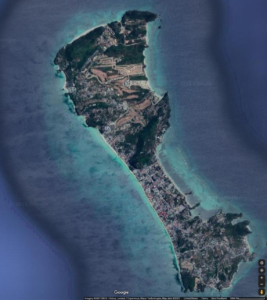Wastewater & Coastal Environmental Health in the Philippines
 This research collaboration between colleagues at the University of California Berkeley (UCB) and the University of the Philippines (UPD) was designed to advance methods for measuring, modelling, and assessing marine water quality and environmental health at three sites in the Philippines. One of the three study sites for this multi-year project is Boracay Island. A popular tourist destination, in recent years sewage and other contaminants have adversely impacted Boracay’s beaches and coastal water quality, with implications for both environmental and human health. This research project centers on the use of an autonomous surface vessel to collect a wide range of spatially referenced data which can be combined with data from water samples and lab-based analyses, as well as satellite and other remote sensed data. At the Boracay site, proxy sensor data (e.g., optical brighteners and tryptophan) and laboratory analyses of grab samples will be combined to map and model actual and estimated water quality and environmental health impacts from point and non-point runoff and wastewater effluent. Our planned research activities and associated timelines suffered from a variety of logistical setbacks and delays, as well as delays related to the COVID-19 Pandemic. We anticipate publishing findings from this work starting in 2023.
This research collaboration between colleagues at the University of California Berkeley (UCB) and the University of the Philippines (UPD) was designed to advance methods for measuring, modelling, and assessing marine water quality and environmental health at three sites in the Philippines. One of the three study sites for this multi-year project is Boracay Island. A popular tourist destination, in recent years sewage and other contaminants have adversely impacted Boracay’s beaches and coastal water quality, with implications for both environmental and human health. This research project centers on the use of an autonomous surface vessel to collect a wide range of spatially referenced data which can be combined with data from water samples and lab-based analyses, as well as satellite and other remote sensed data. At the Boracay site, proxy sensor data (e.g., optical brighteners and tryptophan) and laboratory analyses of grab samples will be combined to map and model actual and estimated water quality and environmental health impacts from point and non-point runoff and wastewater effluent. Our planned research activities and associated timelines suffered from a variety of logistical setbacks and delays, as well as delays related to the COVID-19 Pandemic. We anticipate publishing findings from this work starting in 2023.
